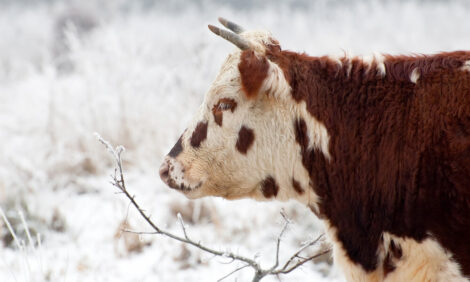



Botswana Govt Kills Infected Cattle
BOTSWANA - Government intends to kill all cattle suspected to be infected with foot and mouth disease, starting Sunday, to contain the spread of the disease in Kuke.Addressing a kgotla meeting in Ghanzi yesterday, Mr De Graaff said veterinary agents would continue to conduct surveillance in the adjacent farms to prove that the disease had not gone beyond the infected zone.
Infected or in-contact animals will be destroyed.
Mr De Graaff said farmers whose cattle had been killed would be compensated at P1 500 per head irrespective of the age, sex, breed or condition of the animal.
"With this strategy, we are optimistic that Ghanzi will regain its status in two to three months," he said.
He said a countrywide ban on the movement of cloven-hoofed animals and their fresh products had been imposed; all slaughter facilities, including Botswana Meat Commission abattoirs in Lobatse and Francistown, have been closed; and a countrywide inspection of cattle to ascertain the extent of the outbreak had been started.
He added that the trace back and trace forward of all cattle that have moved from and into the infected farms within the last 30 days has also been started.
'We have informed the World Organisation for Animal health, our trading partners and neighbouring countries of the outbreak," he said.
Mr De Graaff said the spread of the disease into the Ghanzi District meant that some loophole remained open.
He said he had pleaded with Ghanzi farmers to maintain their fences, and with the public desist from bringing fresh animal products from Ngamiland and not to visit farms and cattle posts in Ngamiland and those in Ghanzi without exercising care.
"It looks like my plea fell on deaf ears," he said.
The minister said the most likely way the disease must have spread was through the movement of people from Ngamiland to Ghanzi. However, if people were careful and decontaminated, there would not be a problem. People were advised to take precautions, partcicularly those handling cattle in Ngamiland and on the Ghanzi side.
"Regrettably, they have not heeded the advice and that is why we are where we are today with an outbreak," he added.
Mr De Graaff said wild animals, particularly Kudu, carry the disease, and there had been their concentration in the Kuke-Phefodiafoka area. The situation was exacerbated by the recent veld fires that ravaged the CKGR and pushed the animals close to the fence in search of grazing.
He asked the nation to cooperate with government officials in combating this outbreak.
TheCattleSite News Desk


